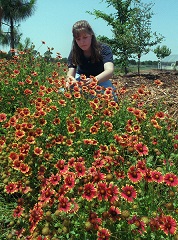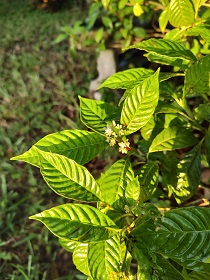We are increasingly aware of the plight of honeybees in our environment. Individual homeowners can aid honeybees and other pollinators by adjusting a few landscaping practices. Plant selection, insect pest management, and general mindfulness are important to helping encourage resilient pollinator populations.

Plant selection
- Honeybees prefer plants that have flat flowers and shorter flower tubes.
- Yellow, white, and blue flowers are especially attractive to them.
- Blanket flower, spotted horsemint, and wild coffee are easy to add to your landscape.
Insect pest management
- Identify insects that might be causing damage in your landscape first. Just because it is there does not mean it is causing harm.
- Try to avoid using ‘broad spectrum’ insecticides. This includes ‘organic methods’ like neem oil and soapy water.
- Direct the product towards the intended species. Beneficial insects are often collateral damage.
- Always read and follow labeled instructions.
General mindfulness

Not every imperfection in your landscape should be addressed. Sometimes we need to allow nature to balance itself out and wait a bit for those beneficial insects to find our small infestations of marauding pests. So take some time to relax and enjoy the flying and crawling things living in a diverse landscape.
Please visit the Florida Bee Gardens page for more information on how you can help provide for this wonderful and necessary segment of Florida wildlife.
For pollinator friendly plant selections, please visit Gardening Solutions plant list for pollinators.



